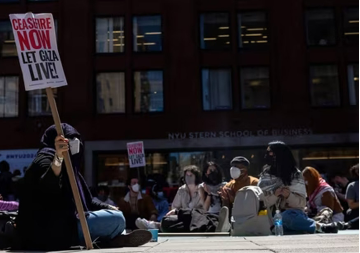
In the United Nations General Assembly 2019, Turkish President Recep Tayyip Erdogan broached the revocation of Article 370 of the Indian Constitution and urged the international community to pay attention to Kashmir. A self-styled champion of Muslims around the world, Erdogan had met the Chinese President Xi Jinping three months earlier and the Chinese press reported him as saying that ‘
people in Xinjiang are living happily.’
Until very recently, Erdogan was seen as the only Muslim leader in the world with the gall to stand up to China’s human-rights abuses in Xinjiang. In 2019, he called the internment camps in the province a ‘great cause of shame for humanity’ and urged Beijing to close down its ‘concentration camps.’ As the Prime Minister in 2009, he went so far as to
condemn the Urumqi riots between Uighurs and Han Chinese as ‘simply put, a genocide. There’s no point in interpreting this otherwise.’ Erdogan’s current stance vis a vis the Uighurs is unrecognisable to his previous position. The rationale behind this turnabout? Trade. Expanding economic relations with Beijing requires him to toe China’s line and stay quiet over human rights issues. Whilst Erdogan uses Islam as a convenient tool to bolster his position at home, he wouldn’t use it in any way that sabotages Turkey’s economy.
Expanding economic relations with Beijing requires him to toe China’s line and stay quiet over human rights issues.
As Ankara’s ties with its traditional Western allies weaken, it has been looking to explore alternative areas to ensure continuous growth of its economy. President Xi Jinping’s flagship Belt and Road Initiative (BRI) accorded with Turkey’s
Middle Corridor Project that seeks to connect China with Turkey through Central Asia and the Caucasus. Chinese investments inundate Turkey to such a large extent that Beijing ranks as Ankara’s third largest trade partner. When Erdogan raised his voice for the Uighurs in early 2019, China closed its
consulate in Izmir, an important coastal city. Since then, Erdogan has taken a muted role in regard to the Uighurs. His party struck down a motion in parliament that sought to establish an ad hoc committee to investigate abuses in Xinjiang. What’s more, an explosive report by
Telegraph described how Turkey is helping to deport Uighur dissidents back to China by first transporting them to third-countries in Central Asia.
What prevents Erdogan from taking a similar approach to India? That is, why is he not prioritising economic relations with New Delhi over his impulse to denounce India’s internal activities in Kashmir? The answer is Pakistan. Pakistan and Turkey are long-standing allies. Being part of the Western camp during the Cold War, they cooperated on security and strategic issues through organisations such as the Baghdad Pact (later known as the Central Treaty Organisation) and Regional Cooperation for Development (RCD). Whilst Islamabad supported Turkey on its dispute with Cyprus, Ankara had Pakistan’s back in the Kashmir conflict. It endorsed a UN-monitored plebiscite to resolve the issue, as opposed to India’s policy of solving the dispute through bilateral negotiation with Pakistan.
Pakistan and Turkey are long-standing allies. Being part of the Western camp during the Cold War, they cooperated on security and strategic issues through organisations such as the Baghdad Pact (later known as the Central Treaty Organisation) and Regional Cooperation for Development (RCD).
Moreover, India’s non-aligned stance made it more difficult for Turkey to reach out to New Delhi. Prime Minister Turgut Ozal attempted to initiate economic ties with India by visiting the country in 1986. The visit was reciprocated by Prime Minister Rajiv Gandhi in 1988, but it did not contribute to a rise in bilateral trade.
With the end of the Cold War, however, relations were expected to take off. But such hopes were dashed when Turkey condemned India’s use of force in Kashmir in the Organisation of Islamic Cooperation summit in 1991. In the early 2000s Ankara came around to supporting a solution for the Kashmiri conflict through negotiations between India and Pakistan, endorsing a view closer to India’s policy. With the major stumbling block between closer relations out of the way, economic relations expanded between the two countries. Trade amounts to as much as $10 billion between the two countries with Turkey importing from India a great deal more than it exports. With the economy at the forefront, relations were set to deepen in security and political fronts as well until Erdogan
threw the ner in the works by inveighing against India at the UNGA for its internal policy regarding Kashmir.
Trade amounts to as much as $10 billion between the two countries with Turkey importing from India a great deal more than it exports.
Prime Minister Narendra Modi
responded to Erdogan’s speech by meeting with the leaders of Greece, Armenia and Cyprus, Turkey’s rivals in the region, on the sidelines of the summit. Modi also cancelled a scheduled trip to Turkey in November 2019 and put on hold a $2.3 billion worth naval deal with a Turkish company that was meant to reduce the trade imbalance between New Delhi and Ankara. Instead, Modi signed a defence agreement with Armenia, Turkey’s neighbouring enemy, worth $40 million. Erdogan ratcheted up tensions when he visited Islamabad in February 2020 and said that Kashmir was ‘as close to Turkey as it is to Pakistan.’
Presiding over a sagging economy and a strained relationship with its traditional Western allies, Erdogan’s Turkey needs to strengthen its engagement with countries like India and China. Pandering to Islamabad’s desire to demonise India would only deny Turkey the advantages it would accrue through a closer economic and strategic relationship with New Delhi. Turkey’s optimal strategy lies in decoupling its ties with Pakistan and India and not letting its engagement with one impinge on the other.
When push comes to the shove, Turkey will have to side with America in its impending super-power rivalry with China.
Furthermore, despite Erdogan’s attempts to drift away from America and Europe, Turkey is still very much a part of the Western alliance. It cannot afford to wholly extricate itself from the West nor is it in its best interests. Therefore, when push comes to the shove, Turkey will have to side with America in its impending super-power rivalry with China. When Ankara makes that hard choice, Pakistan will be deeply embedded in the Chinese camp. In such a situation, camaraderie with India, a country squarely opposed to Chinese aggression, would only benefit Ankara.
From India’s perspective, Turkey will be a key strategic ally in the Middle Eastern region. Both secular democracies and middle-income countries, India and Turkey are, as a senior Turkish lawmaker said last year, ‘
natural allies.’ The two countries have abundant opportunities to expand their relationship in terms of economy, strategy and security and Erdogan’s obsession over Kashmir would only delay its blossoming. India would have no option but to expand its outreach to Ankara’s nemeses in the region, namely Greece, Cyprus and Armenia, if Erdogan continues to cause hassle to New Delhi. Previously, India has not denounced Turkey’s aggression in its neighbourhood. For instance, Turkey’s invasion of Northern Cyprus in 1974 elicited no major response from New Delhi. However, India
condemned Ankara’s military incursion into Syria in October 2019 and urged it to exercise restraint. Whether this move remains an aberration in Indo-Turkish bilateral relations or becomes the norm depends on Erdogan’s actions in the future. The 75th session of UNGA scheduled to take place virtually this month might provide an answer. If Erdogan refrains from broaching Kashmir again, it would prove significant for the future course of relations between India and Turkey.
India would have no option but to expand its outreach to Ankara’s nemeses in the region, namely Greece, Cyprus and Armenia, if Erdogan continues to cause hassle to New Delhi.
At the same time, Ankara has to be careful about its deepening ties with China. Beijing’s ‘
debt-trap diplomacy’ involves lavishing client states with generous loans and extracting political or economic concessions when a country fails to pay back its debt. Whilst diversifying its foreign relations is a beneficial enterprise, Turkey shouldn’t drift off so much from the West that it becomes difficult for it to choose sides between America and China should a direct confrontation arise between the two. Erdogan’s silence over the Uighurs can be explained by political expediency and
realpolitik but getting lured into a complex entanglement with China would have potentially insidious consequences.
The author is a research intern at ORF.
The views expressed above belong to the author(s). ORF research and analyses now available on Telegram! Click here to access our curated content — blogs, longforms and interviews.



 In the United Nations General Assembly 2019, Turkish President Recep Tayyip Erdogan broached the revocation of Article 370 of the Indian Constitution and urged the international community to pay attention to Kashmir. A self-styled champion of Muslims around the world, Erdogan had met the Chinese President Xi Jinping three months earlier and the Chinese press reported him as saying that ‘
In the United Nations General Assembly 2019, Turkish President Recep Tayyip Erdogan broached the revocation of Article 370 of the Indian Constitution and urged the international community to pay attention to Kashmir. A self-styled champion of Muslims around the world, Erdogan had met the Chinese President Xi Jinping three months earlier and the Chinese press reported him as saying that ‘ PREV
PREV

